In pictures: Seabirds cleaned at Somerset RSPCA centre
- Published
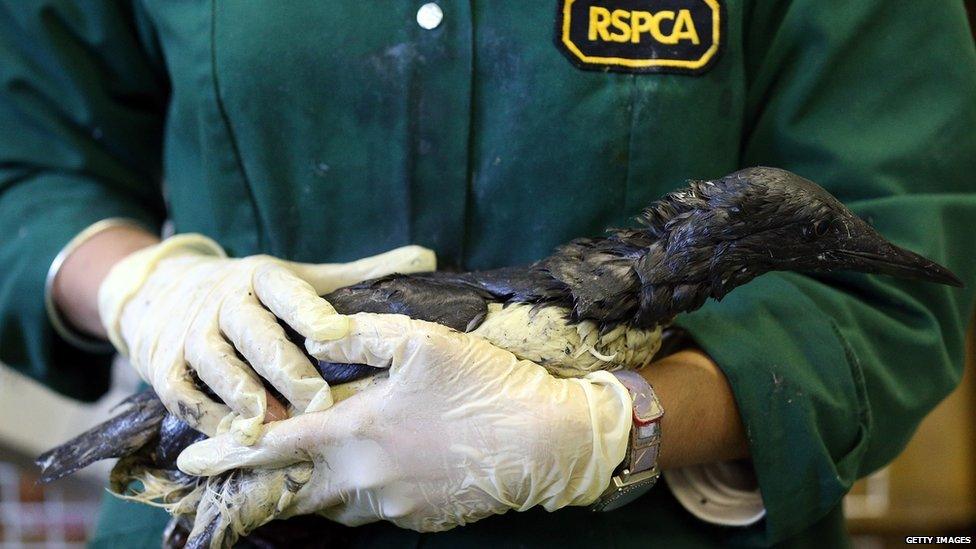
More than 300 seabirds, mostly guillemots but also some razorbills, are being cared for in Somerset after being found covered in an oily substance on the south west coast. Hundreds more birds have been found dead.
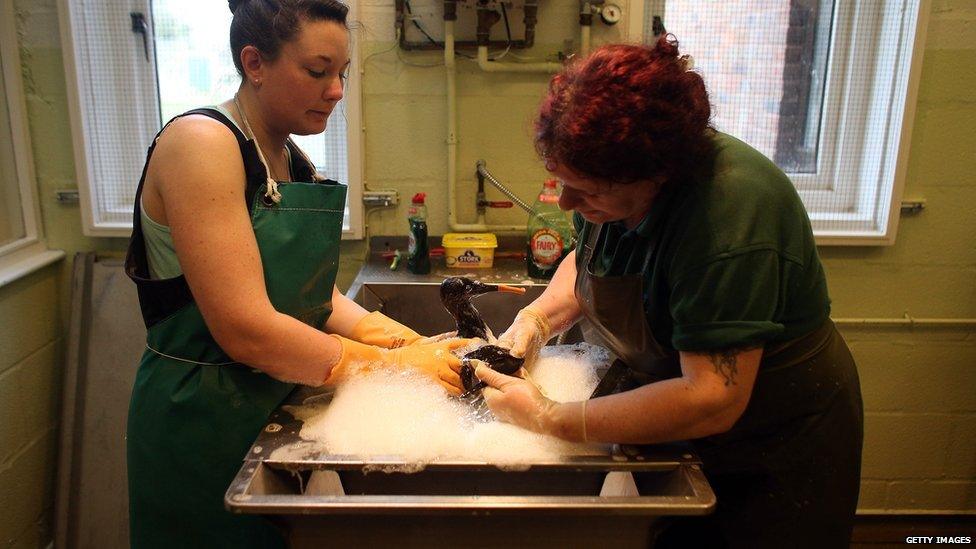
It takes an hour to treat each bird at the RSPCA's West Hatch animal rescue centre in Taunton, which says it has not encountered this type of oil before. Margarine is being used to try to break it down before each bird is washed in soapy water.
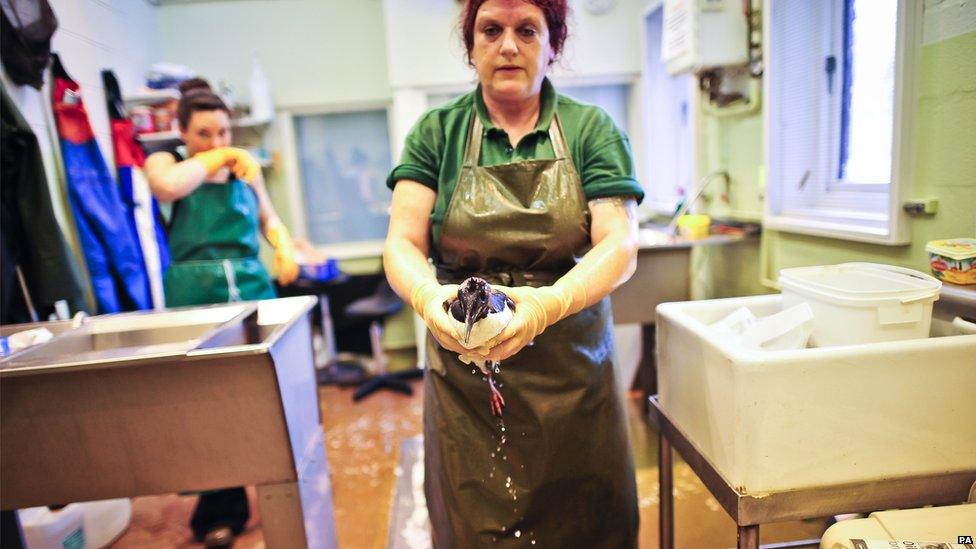
Emily Atkinson, a wildlife assistant (pictured, left), said: "It's so disheartening because you know a lot of these won't survive through the release process."
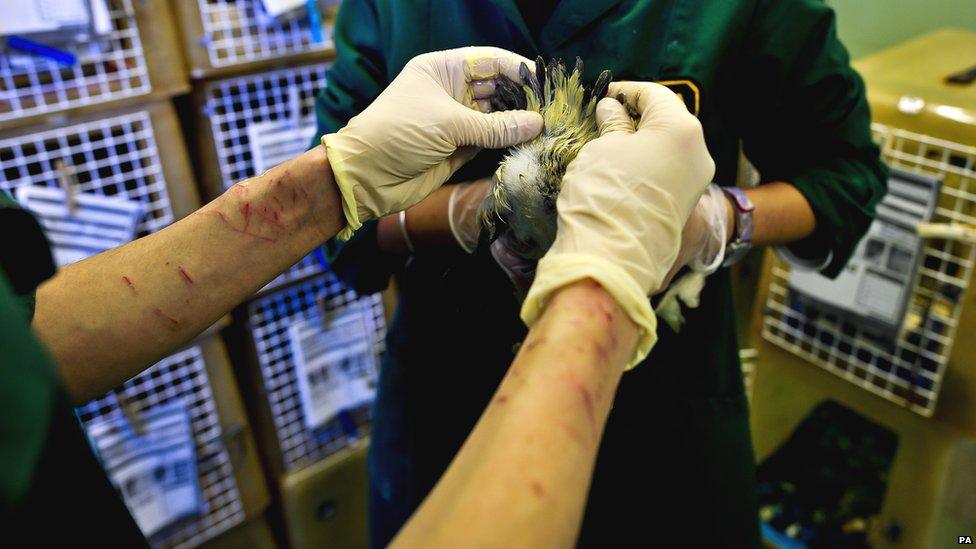
More staff have been drafted in to help with the rescue effort - staff who were not only emotionally involved in the hard work, but physically hurt as well, as shown on the arms of worker Allison Yellowey, who has been pecked by guillemots.
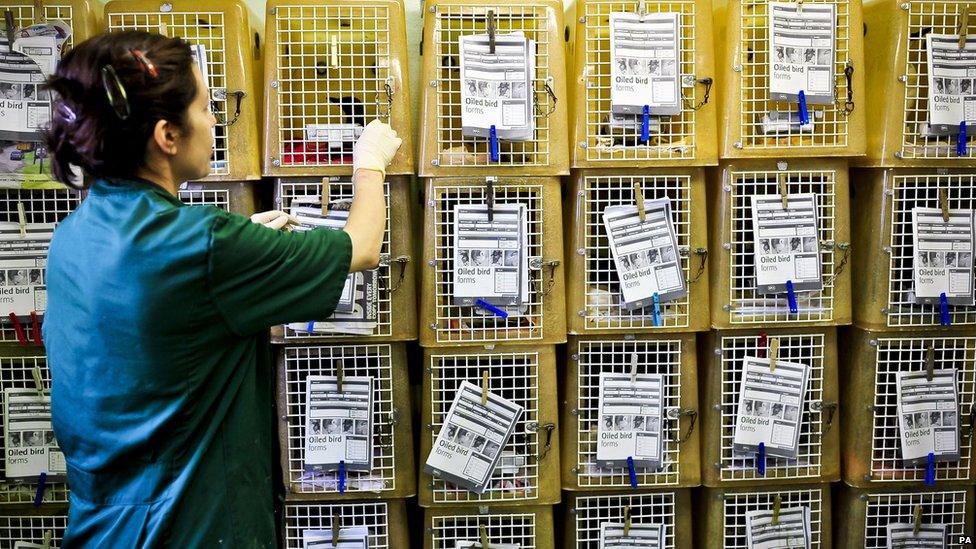
Peter Venn, centre manager, said: "Before this incident the centre was nearly full. We've had to move animals around to try and get space for these birds. But on a daily basis we've got four or five times the number of people we would normally have in here, to do the job."
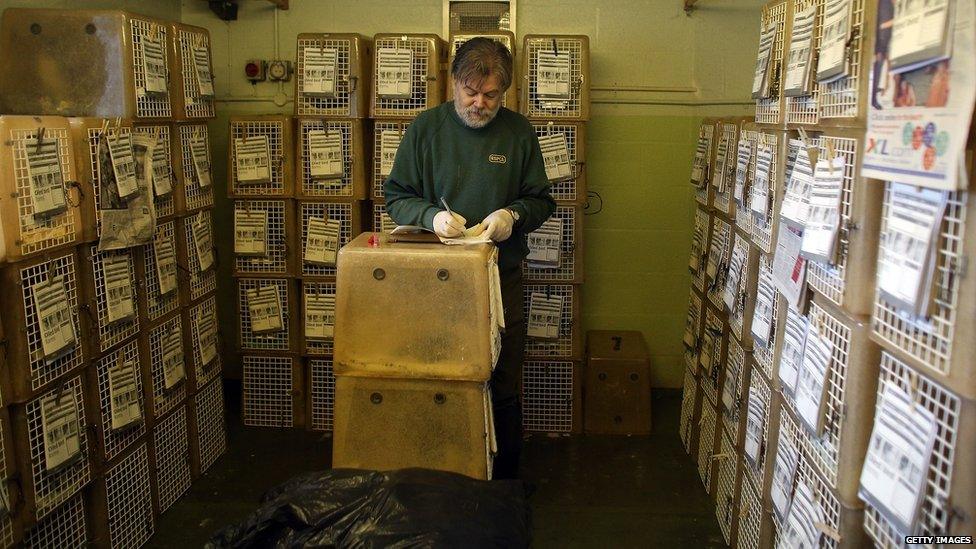
The centre said the birds, which are currently piled high in individual crates at the centre, would not be returned to the water until the source of the pollution had been identified and the danger had passed, which could take weeks.
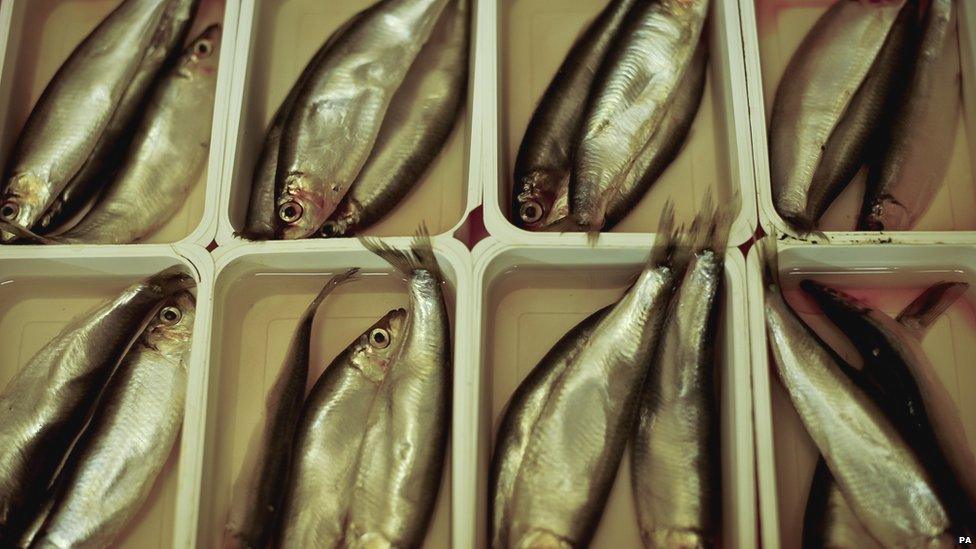
Some 80 kilos of sprats are given as food, per day, to the rescued seabirds which were washed ashore along the south coast between Cornwall and West Sussex. Food costs alone are over £70 per day, and with additional costs for medication and care, the centre is spending up to £400 per day on the birds.
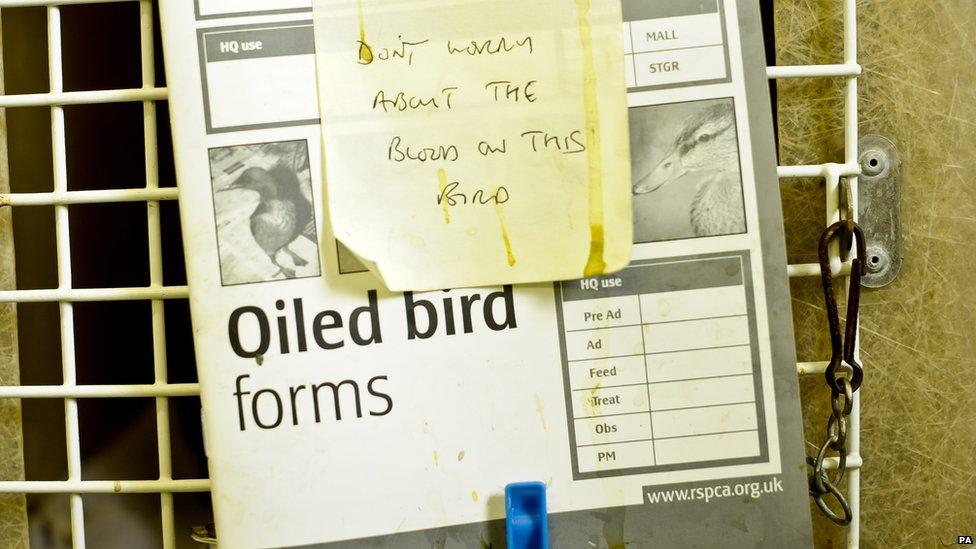
Last week, scientists from the Environment Agency identified the glue-like substance as a refined mineral oil. Environment Minister Richard Benyon said if the polluter can be identified, sanctions would be brought against them.
- Published5 February 2013
- Published4 February 2013
- Published3 February 2013
- Published2 February 2013